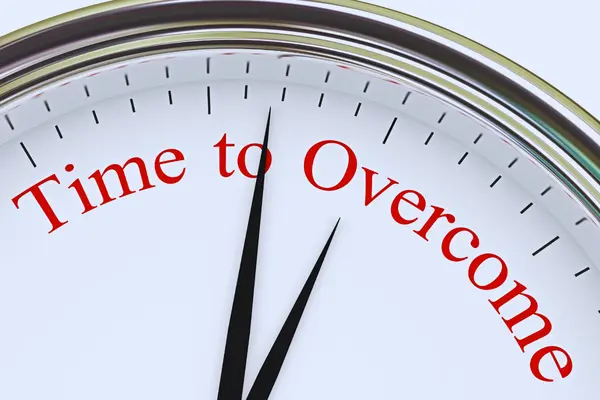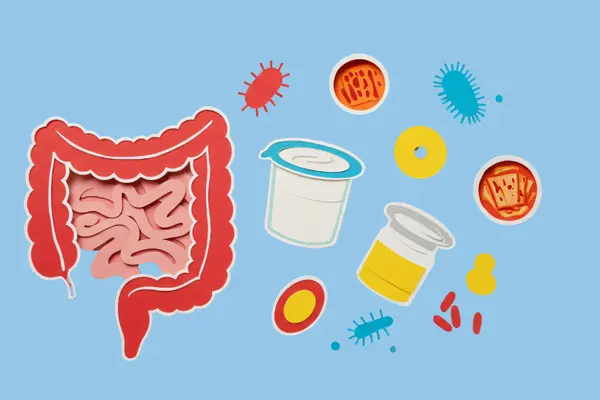Many people in Dubai struggle with weight loss despite dieting and exercise. Food intolerance could be the hidden culprit, causing bloating, inflammation, and slow metabolism. Common triggers like dairy, gluten, and processed foods can lead to water retention and stubborn weight. Identifying and eliminating these problem foods can optimize digestion, reduce cravings, and support sustainable fat loss. If weight loss feels impossible, addressing food intolerance might be the key to success.

Understanding Food Intolerance and Its Impact on Weight Loss
Many people in Dubai struggle with weight loss despite following strict diets and exercise routines. One overlooked factor that could be hindering progress is food intolerance. Unlike food allergies, which trigger immediate and severe reactions, food intolerances cause subtle yet persistent symptoms that can disrupt metabolism, digestion, and overall health—leading to unexplained weight gain or difficulty losing weight.
How Food Intolerance Affects Weight Loss
- Chronic Inflammation – When the body reacts negatively to certain foods, it triggers an inflammatory response. Inflammation can lead to water retention, bloating, and fat accumulation, making it harder to shed extra kilos.
- Digestive Issues – Food intolerance can cause bloating, gas, constipation, or diarrhea. Poor digestion prevents the body from absorbing essential nutrients, affecting metabolism and energy levels.
- Hormonal Imbalances – Some food intolerances disrupt insulin, cortisol, and thyroid hormones, all of which play a crucial role in weight management. Insulin resistance, for example, makes fat storage more likely.
- Increased Cravings and Overeating – When the body struggles to digest certain foods, it can lead to sugar cravings, energy crashes, and emotional eating, making weight loss even more challenging.
- Slower Metabolism – Chronic stress on the digestive system can lead to metabolic slowdowns, making it harder to burn fat efficiently.
Common Food Intolerances That Can Affect Weight Loss

- Dairy (Lactose intolerance) – Causes bloating, inflammation, and sluggish digestion.
- Gluten (Wheat intolerance) – Linked to bloating, weight gain, and brain fog.
- Soy – Can interfere with thyroid function and metabolism.
- Refined Sugar – Spikes insulin levels, leading to fat storage.
- Processed Foods & Additives – Artificial ingredients can disrupt gut health and digestion.
If weight loss efforts have been frustrating despite healthy eating and exercise, food intolerance could be the missing link. Addressing it not only helps shed stubborn weight but also improves overall well-being.
Why Healthy Eating Alone May Not Be Enough for Weight Loss
Many people assume that eating a healthy diet is the key to weight loss. While nutrition plays a crucial role, healthy eating alone may not be enough to shed stubborn weight. Weight loss is a complex process influenced by multiple factors, including metabolism, hormones, activity levels, gut health, and even stress. Without addressing these key areas, even the cleanest diet may fail to deliver results.

Reasons Why Healthy Eating Isn’t Always Enough
1. Hidden Food Intolerances
Even nutritious foods like dairy, gluten, or certain grains can cause inflammation, bloating, and water retention if the body is intolerant to them. Food sensitivities may slow metabolism and prevent fat loss despite a healthy diet.
2. Metabolic Adaptation
Over time, the body adapts to calorie intake, making it harder to lose weight. If metabolism slows down due to chronic dieting or insufficient calories, weight loss can plateau even with a clean diet.
3.Hormonal Imbalances
Hormones such as insulin, cortisol, thyroid hormones, and leptin play a major role in fat storage and appetite regulation. If these are out of balance due to stress, poor sleep, or underlying conditions, weight loss becomes difficult even with a healthy diet.
4. Lack of Physical Activity
While diet accounts for a significant portion of weight management, exercise is essential for boosting metabolism, burning calories, and preserving muscle mass. Without physical activity, the body may store more fat despite eating well.
5. Stress and Emotional Eating
High levels of stress increase cortisol, a hormone linked to fat storage, particularly around the abdomen. Additionally, stress can lead to emotional eating, undoing the benefits of a healthy diet.
6. Poor Gut Health
A dysfunctional gut microbiome can lead to poor digestion, inflammation, and difficulty absorbing nutrients properly. Even the healthiest foods won’t be effective if the gut isn’t functioning optimally.
7. Inconsistent Sleep Patterns
Lack of sleep disrupts hunger hormones (ghrelin and leptin), leading to increased cravings and slower metabolism. Even with a perfect diet, poor sleep can make weight loss a struggle.
How to Overcome These Barriers to Weight Loss

- Identify and eliminate food intolerances to reduce inflammation and improve digestion.
- Incorporate strength training and cardio to boost metabolism and fat burning.
- Manage stress through meditation, deep breathing, or relaxation techniques to balance cortisol levels.
- Prioritize gut health by consuming probiotics, fiber, and digestive enzymes.
- Ensure sufficient sleep (7-8 hours per night) to regulate hunger and metabolism.
- Balance hormones naturally through lifestyle changes, stress management, and proper nutrition.
Eating healthy is a great foundation for weight loss, but it’s only one piece of the puzzle. To achieve sustainable weight loss, it’s essential to address metabolism, hormones, stress, gut health, and exercise. By taking a holistic approach, weight loss becomes more effective and long-lasting.
How Dietary Choices and Cravings Influence Weight Management
Weight management is not just about counting calories—it’s about making the right dietary choices and understanding how cravings impact eating habits. The foods consumed daily affect metabolism, hormone balance, gut health, and overall energy levels, all of which play a crucial role in weight loss or gain. Cravings, on the other hand, often lead to unhealthy eating patterns that can sabotage weight loss efforts.

The Role of Dietary Choices in Weight Management
1. Nutrient-Dense vs. Empty Calories
- Whole, unprocessed foods (lean proteins, healthy fats, fiber-rich vegetables) fuel metabolism, regulate hunger hormones, and prevent overeating.
- Processed foods high in sugar and unhealthy fats contribute to fat storage, energy crashes, and increased cravings.
2. The Impact of Macronutrient Balance
- Protein boosts metabolism, keeps you full longer, and helps preserve lean muscle mass.
- Healthy fats (avocados, nuts, olive oil) help regulate hormones and control hunger.
- Complex carbohydrates (quinoa, brown rice, sweet potatoes) provide steady energy, whereas refined carbs (white bread, pastries) cause blood sugar spikes and cravings.
3. The Importance of Hydration
- Dehydration is often mistaken for hunger, leading to unnecessary snacking.
- Drinking enough water improves digestion, metabolism, and satiety levels.
How Cravings Influence Weight Gain and Loss

Cravings are often not about real hunger but emotional, hormonal, or habitual responses to triggers. Understanding their root cause can help in making better food choices.
1. Sugar Cravings and Blood Sugar Spikes
- High sugar intake leads to rapid insulin spikes and crashes, causing more cravings and fat storage.
- Choosing fiber-rich foods and proteins helps stabilize blood sugar and reduce sugar cravings.
2. Emotional Eating and Stress Cravings
- Stress triggers cortisol release, increasing cravings for comfort foods (sweets, salty snacks).
- Managing stress through mindfulness, breathing exercises, or herbal teas can help prevent emotional eating.
3. Nutrient Deficiencies Leading to Cravings
- Magnesium deficiency may cause chocolate cravings.
- Low protein intake may increase carb and sugar cravings.
- Lack of healthy fats can make you crave fried or fatty foods.
4. Late-Night Snacking Habits
- Eating late at night, especially high-carb or high-fat foods, can slow metabolism and lead to fat storage.
- Opting for herbal teas or protein-rich snacks can help control nighttime hunger.
Dietary choices and cravings play a significant role in weight management. By choosing nutrient-dense foods, understanding what triggers cravings, and making mindful eating decisions, long-term weight control becomes easier and more sustainable.
The Gut-Weight Connection: How Gut Health Affects Fat Loss

Many people focus on diet and exercise for weight loss, but gut health plays a crucial role in fat loss and overall metabolism. The digestive system is home to trillions of bacteria that influence digestion, nutrient absorption, and even fat storage. If the gut is unhealthy, it can lead to bloating, inflammation, slow metabolism, and difficulty losing weight—even with a clean diet and regular exercise.
How Gut Health Impacts Fat Loss
1. Microbiome Balance and Metabolism
- The gut microbiome consists of good and bad bacteria that help break down food and regulate metabolism.
- An imbalance (dysbiosis) can lead to poor digestion, fat storage, and increased appetite, making weight loss difficult.
2. Inflammation and Weight Gain
- Unhealthy gut bacteria trigger chronic inflammation, leading to bloating, water retention, and insulin resistance.
- Inflammation can make the body store fat instead of burning it.
3. Hormonal Regulation
- The gut influences hormones like insulin, ghrelin (hunger hormone), and leptin (satiety hormone).
- A dysfunctional gut can lead to increased hunger, sugar cravings, and difficulty feeling full, leading to overeating.
4. Nutrient Absorption
- Poor gut health reduces the body’s ability to absorb essential nutrients like vitamins, minerals, and fatty acids.
- This can lead to fatigue, sugar cravings, and slow metabolism, making weight loss harder.
5. Toxin Removal and Detoxification
- A healthy gut helps eliminate toxins and waste efficiently.
- If digestion is sluggish, toxins accumulate, making the liver and other detox organs work harder, slowing fat loss.
Signs of an Unhealthy Gut That May Be Blocking Weight Loss

- Frequent bloating, gas, or constipation
- Cravings for sugar and processed foods
- Feeling tired or sluggish despite eating well
- Unexplained weight gain or difficulty losing weight
- Skin issues like acne or eczema
- Brain fog or mood swings
How to Improve Gut Health for Fat Loss
1. Increase Probiotics & Fermented Foods
- Eat yogurt, kimchi, sauerkraut, kefir, and miso to restore good bacteria.
- Take a high-quality probiotic supplement to improve gut flora.
2. Eat More Prebiotic Foods
- Foods like onions, garlic, bananas, and asparagus feed good gut bacteria, enhancing digestion and metabolism.
3. Reduce Sugar and Processed Foods
- Excess sugar feeds harmful bacteria and promotes gut inflammation, slowing weight loss.
- High-fiber foods (chia seeds, flaxseeds, leafy greens) promote gut motility and detoxification.
- Digestive enzymes help break down food efficiently, reducing bloating and improving nutrient absorption.
5. Stay Hydrated
- Drinking plenty of water supports digestion and toxin elimination, preventing bloating and sluggish metabolism.
6. Manage Stress & Improve Sleep
4. Support Digestive Enzymes & Fiber Intake
- Chronic stress disrupts gut health and increases cortisol, leading to fat storage.
- Prioritizing sleep and stress management helps regulate gut bacteria and support weight loss.
The gut-weight connection is a key factor often overlooked in fat loss journeys. A healthy gut improves digestion, reduces inflammation, balances hunger hormones, and supports metabolism, making it easier to lose weight naturally. By nourishing gut health with the right foods, probiotics, and lifestyle changes, long-term fat loss becomes more achievable.
Intermittent Fasting: Does It Really Work for Weight Loss?
Intermittent fasting (IF) has gained popularity as a weight loss strategy, but does it really work? Unlike traditional diets that focus on what to eat, intermittent fasting focuses on when to eat. By cycling between periods of eating and fasting, it helps regulate metabolism, balance hormones, and promote fat burning.

How Intermittent Fasting Works for Weight Loss
1. Boosts Fat Burning and Metabolism
- During fasting, insulin levels drop, allowing the body to switch from burning glucose to burning stored fat for energy.
- Increased human growth hormone (HGH) levels help preserve muscle mass and enhance fat loss.
2. Reduces Caloric Intake Naturally
- Eating within a limited time window (e.g., 8-hour eating period) naturally reduces calorie consumption.
- This helps create a calorie deficit, which is essential for weight loss.
3. Improves Insulin Sensitivity
- Regular fasting lowers insulin resistance, making it easier for the body to process food and prevent fat storage.
- This is especially beneficial for people with belly fat, prediabetes, or metabolic disorders.
4. Regulates Hunger Hormones
- Fasting stabilizes ghrelin (hunger hormone) and leptin (satiety hormone), helping to control cravings and episodes of overeating.
- People who struggle with constant snacking often find that intermittent fasting naturally reduces their appetite over time.
5. Supports Cellular Repair and Detoxification
- The body enters autophagy (cellular cleansing) during fasting, removing damaged cells and toxins.This process may improve overall metabolism and reduce inflammation linked to weight gain.
Intermittent fasting can be an effective and sustainable weight loss tool when done correctly. By balancing insulin levels, promoting fat burning, and reducing overall calorie intake, it supports healthy weight loss. However, results vary based on individual metabolism, lifestyle, and dietary choices. Those considering intermittent fasting should experiment with different methods to find what works best for their body.
Are Weight Loss Supplements Safe and Effective?
Weight loss supplements promise quick results, but are they safe? While some contain natural ingredients that may support metabolism, others pose significant health risks. Many supplements on the market are unregulated, contain harmful ingredients, or have severe side effects. Understanding their safety is crucial before considering them as part of a weight loss plan.

Potential Risks of Weight Loss Supplements
1. Unregulated and Unapproved Ingredients
- Many supplements are not FDA-approved and may contain hidden stimulants, synthetic chemicals, or banned substances.
- Some have been linked to liver damage, high blood pressure, and heart problems.
2. Harmful Side Effects
- Fat burners (thermogenics) often contain caffeine and stimulants, leading to jitters, insomnia, anxiety, and rapid heart rate.
- Appetite suppressants can cause digestive issues, nausea, and mood swings.
- Fat blockers (like Orlistat) may result in oily stools, digestive discomfort, and nutrient deficiencies.
3. Interaction with Medications
- Some supplements interfere with blood pressure, diabetes, or thyroid medications, leading to dangerous complications.
- Herbal supplements may have unexpected effects when combined with prescription drugs.
4. Weight Loss Rebound Effect
- Supplements that artificially suppress appetite can lead to muscle loss and a slowed metabolism.
- Once discontinued, many users experience rapid weight regain due to hormonal imbalances.
5. Psychological Dependence
- Some people become reliant on supplements instead of adopting healthy eating and exercise habits.
- This can lead to long-term weight struggles and unhealthy dieting behaviors.
Weight loss supplements can be risky if used without proper research. While some natural supplements may offer mild benefits, most are not necessary for sustainable fat loss. The safest and most effective approach to weight loss is still a balanced diet, regular exercise, and lifestyle changes—not reliance on pills. Before considering supplements, always prioritize health and safety first.
The Link Between Stress and Weight Gain: What You Need to Know

Stress is an unavoidable part of life, but chronic stress can make weight management much more difficult. Many people struggling with weight gain don’t realize that their stress levels may be a key factor. Stress affects the body in multiple ways, from hormonal imbalances to increased cravings, making it harder to lose weight or maintain a healthy lifestyle.
How Stress Contributes to Weight Gain
1. Increases Cortisol Levels (Stress Hormone)
- When the body is under stress, it releases cortisol, a hormone that triggers fat storage, especially around the abdomen.
- High cortisol levels slow metabolism, making it easier to gain weight even with controlled eating.
2. Leads to Emotional Eating
- Stress can trigger cravings for high-sugar, high-fat comfort foods, leading to overeating.
- Many people eat as a coping mechanism to reduce anxiety or frustration, resulting in caloric surplus and weight gain.
3. Disrupts Sleep and Hunger Hormones
- Chronic stress often leads to poor sleep, which affects ghrelin (hunger hormone) and leptin (satiety hormone).
- Poor sleep makes the body feel hungrier than usual, increasing the urge to snack on unhealthy foods.
4. Slows Digestion and Gut Health
- Stress can cause digestive issues like bloating, constipation, and gut inflammation, making it harder for the body to absorb nutrients and burn fat efficiently.
- An unhealthy gut microbiome may lead to weight retention and cravings for unhealthy foods.
5. Reduces Motivation for Physical Activity
- High stress can lead to low energy levels, fatigue, and lack of motivation to exercise.
- Less physical activity means fewer calories burned, making weight gain more likely.
How to Manage Stress to Prevent Weight Gain
- Practice Mindful Eating – Be aware of emotional eating and focus on healthy food choices.
- Prioritize Sleep – Aim for 7-8 hours of quality sleep to regulate hunger hormones.
- Incorporate Stress-Relief Activities – Meditation, yoga, deep breathing, or walking can help lower cortisol levels.
- Engage in Regular Exercise – Physical activity reduces stress hormones and improves metabolism.
- Support Gut Health – Include probiotics and fiber-rich foods to improve digestion and weight regulation.
Stress and weight gain are closely linked, mainly due to hormonal changes, emotional eating, and metabolism disruptions. Managing stress effectively can help prevent weight gain, improve digestion, and support long-term weight loss efforts. Prioritizing sleep, mindfulness, exercise, and a balanced diet can significantly reduce stress-related weight issues, leading to better overall health.
Conclusion
Losing weight isn’t just about cutting calories or hitting the gym—it’s about understanding how your body reacts to food, stress, and lifestyle choices. Many people in Dubai struggle with stubborn weight gain despite following healthy diets and exercise routines, often unaware that food intolerance, gut health, and hormonal imbalances could be the missing link.
By identifying and eliminating trigger foods, managing stress, improving gut health, and adopting a holistic approach to wellness, sustainable weight loss becomes achievable. Instead of chasing fad diets or quick fixes, listen to your body, make mindful dietary choices, and focus on long-term health. When you address the root causes, weight loss stops being a battle—it becomes a natural result of a well-balanced lifestyle.
Ready to take control of your health? Start by understanding your body’s unique needs, and success will follow


